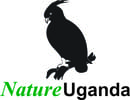- Home
- Conservation / working Groups
ABOUT WORKING GROUPS
NatureUganda’s membership coordinates six special interest groups (Working Groups) comprising of members with particular interests in conservation. These Working Groups were formed based on the wide range of interests, specialties and expertise of members and to encourage all to participate in the field activities of their interest. These groups have attracted a wide range of expertise and diversified member’s participation in membership activities. The Working Groups shall provide technical input to NatureUganda’s programmes especially by supporting:
Research activities: i.e. data collection, storage, analysis and information dissemination.
Linking the institution with others in emerging research opportunities.
Creating awareness of the general membership and public on opportunities.
Providing learning opportunity to members in various fields and participation in the organisations programmes.

Herps Working Group
Herps Working Group
The term herps refers to reptiles (snakes, lizards, tortoises, turtles and crocodiles) and amphibians (caecilians, toads and frogs). HWG members are volunteers who have special interest in reptiles and amphibians. Stripped frog The overall objective of this working group is to give in-depth information on the conservation of the amphibian and reptilian diversity in Uganda. Specifically, the group seeks to:
- Build the knowledge base of reptiles and amphibians.
- Promote the conservation of rare, threatened and restricted range species of reptiles and amphibians programmes.
- Synthesize and provide information for monitoring and conservation of herps diversity and the habitats
- Monitor the sites to show trends in herps diversity and abundance.
- Create a forum for exchange of ideas and approaches with wildlife managers, scientists, and the technicians to contribute to policy development and implementation.
- Carry out surveys to determine the diversity and status of herpes in Uganda.
- Train members in the identification and survey techniques for herpes in Uganda.
The group is currently being involved in collating data to come up with the checklist of the Herps of Uganda.

Mammals Working Group
Mammals Working Group
Mammal Conservation Group (MCG) is a specialized group of various professionals ranging from environmentalists, policy makers, researchers, data managers, administrators, mammal experts to volunteers interested in mammals and their conservation.The aim is to raise awareness of the plight of mammals in Uganda while the objectives are:
- Promoting and lobbying for the conservation of mammals and their habitats in Uganda.
- Involving the public in activities that enhance conservation of mammals.
- Generation and dissemination of scientific information for the conservation of mammals.
The MCG is collecting information on mammals to establish the conservation status of mammals in Uganda.

Dudus Working Group
Dudus Working Group
The Dudus working group (DWG) is one of the specialized groups of NatureUganda. It is a voluntary technical group of people interested in insects and their conservation. The group promotes the conservation of Insects in Uganda and beyond, with special emphasis on rare, threatened or endemic species.
The group also promotes conservation of important insect sites and habitats especially the species rich sites. The group has been useful in providing information on the Butterflies of L.Mburo-Nakivale and L. Bisina- Opeta region for the COBWEB project baseline survey.
The group is working on a species list for the Butterflies of Uganda. The Dudus working group works to promote the following objectives;
- To promote the understanding and appreciation of Insects especially Butterflies since they are attractive and can be easily observed.
- Generate interest within the public towards conservation of Insects.
- Promote the conservation of important Insect species and their habitats.

BirdLife Uganda
BirdLife Uganda
Birdlife Uganda is one of the specialized groups of NatureUganda with its members interested in birds and their conservation.
The group works to promote the conservation of birds in their habitat. This group has been very active in carrying out research on birds, sites and habitats important for bird conservation. The Birdlife Uganda group has in the past worked on the Important Bird Areas program, which was successful and produced a directory of the Important Bird Areas in Uganda and Popular Birds handbook.
The group is currently monitoring the indentified Important Bird Areas, Water bird sites and bird population monitoring in the country. It is also involved in working on the Birds of Uganda checklist and improving the Popular Birds handbook.
Birdlife Uganda aims at:
- Preventing the extinction of any bird species.
- Reducing the number of species that are globally threatened.
- Enhancing the conservation status of all bird species.
- Promoting Conservation crucial sites and habitants for birds.

Plants Working Group
Plants Working Group
The Plants working group (PWG) is one of the specialized groups of NatureUganda with members interested in plants and their conservation. The group promotes research and conservation of plants with special emphasis on rare, threatened or endemic plants and other special groups such as the Orchids and Cycads.
- To promote the understanding and appreciation of plants (through activities such as plant walks).
- Identify and act to conserve important plant species and habitats.
- Generate interest within the public towards conservation of plants.
The working group has been involved in a developing a criteria for identifying Important Plant Areas in Uganda and is now working to indentify the Important Plant Areas based on the criteria. The group was also useful in the baseline survey of the COBWEB project by providing information on the plants of L.Mburo-Nakivale and L.Bisina-Opeta Regions.

Microbial Resources Working Group
Microbial Resources Working Group
The Microbial Resources Working Group (MRWG) works towards promoting the understanding and documenting microbial resources in Uganda especially those of economic importance. The group has been involved in Avian Flu surveillance in Uganda together with the Ministry of Health, MUK faculty of Veterinary medicine and is interested in establishing a microbial resources centre in East Africa. The group is currently monitoring Lutembe and Nakiwogo monthly for avian flu.
Become a Member
Support our work and contribute to conservation of nature in Uganda.

